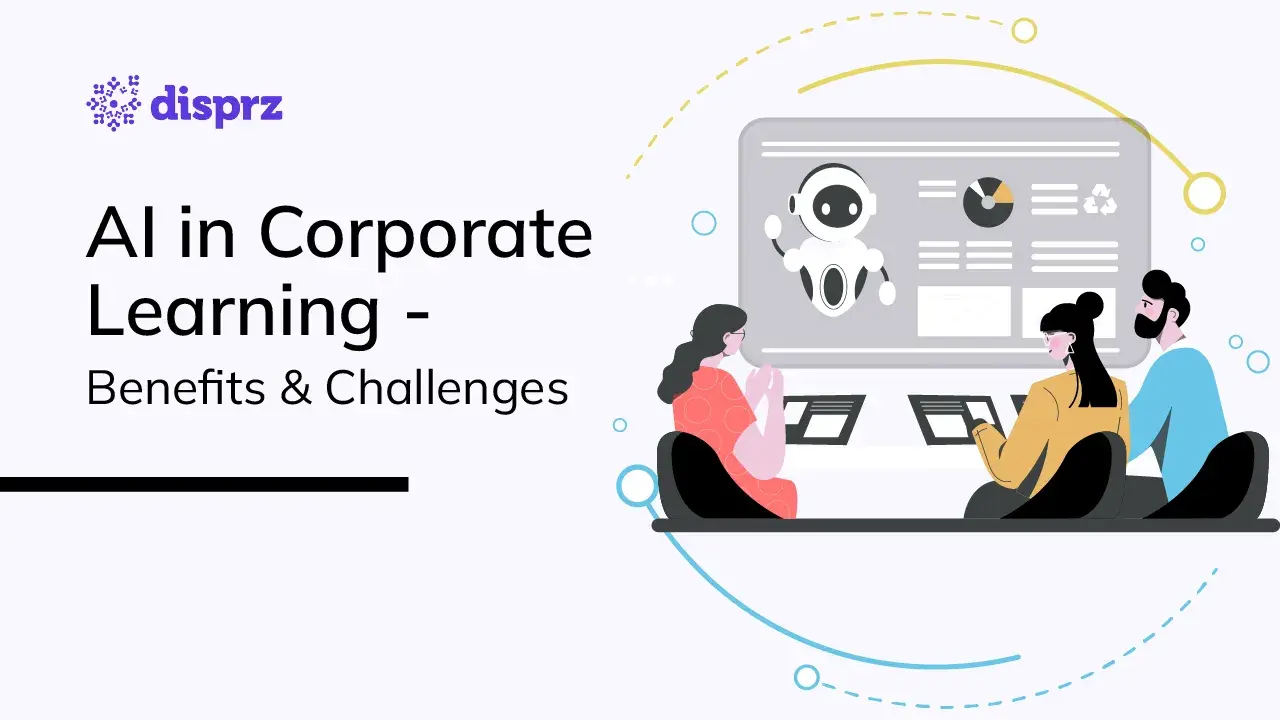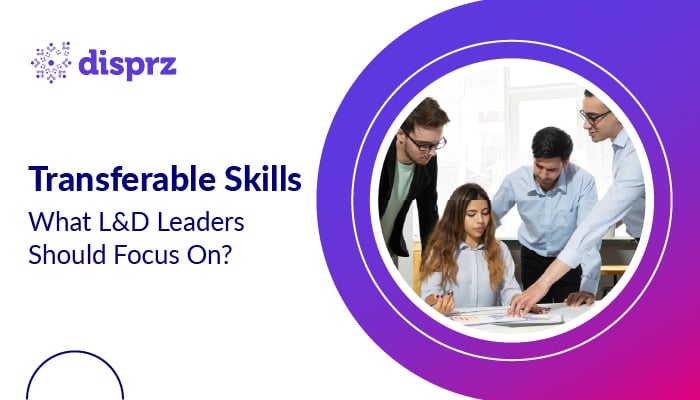Introduction to AI in L&D
Many organizations struggle to effectively leverage artificial intelligence (AI) and machine learning in learning and development (L&D) to streamline processes, enhance decision-making, and boost efficiency.
Without a clear understanding of these technologies, they risk falling behind in digital transformation, missing out on opportunities that could drive business innovation and revenue growth.
Key Benefits of AI in Corporate Learning
Providing AI training to employees not only offers significant benefits to organizations but also boosts their morale, productivity, and job satisfaction.
Understanding the Customer Better
AI technology enables businesses to analyze real-time data, uncovering customer trends and preferences more effectively. This insight helps employees deliver improved customer outcomes, enhancing job satisfaction. As a result, employees can achieve better results and advance within their roles.
Increased Employee Engagement and Productivity
By integrating AI technology into processes, organizations can automate or streamline stages of the product life cycle, boosting efficiency and freeing up employees' time for more critical tasks. This enhanced focus increases productivity and allows employees to pursue personal growth, leading to greater engagement in their roles.
Continuous Learning
AI-powered learning platforms provide round-the-clock access to a wide range of training resources, enabling employees to learn at their own pace and stay current. This constant availability ensures that learning can seamlessly integrate into employees' schedules, supporting ongoing professional development.
Data-Driven Decisions
By examining training records, organizations can make well-informed decisions regarding employee development, leading to more efficient and impactful training. Data-driven insights enable the creation of targeted training programs that address employees' specific needs and weaknesses.
Cost-Efficiency
AI-driven training tools offer affordable and scalable solutions, cutting down on the time and expenses usually linked to traditional training methods. This cost efficiency makes it possible for small and medium-sized businesses to deliver high-quality training to their employees.
AI Use Cases in Corporate Training
Let’s examine real-world examples demonstrating how AI is revolutionizing corporate training.
Boosting Employee Engagement
Incorporating chatbots and virtual assistants into training programs boost employee engagement by delivering real-time support and tailored feedback. These AI-driven tools can respond to inquiries, offer guidance, and provide instant help, creating a more interactive and user-centric learning experience.
Promoting Continuous Learning
AI fosters ongoing learning and skill development by offering personalized courses and resources that help employees enhance their skills and remain competitive. Whether aiming to advance in their current role or prepare for new responsibilities, AI-powered learning platforms provide the necessary support.
Streamlining Onboarding
AI improves and simplifies the onboarding process for new employees by creating tailored learning paths through corporate training platforms. This personalized approach accelerates the integration of new hires into company processes and culture, minimizing the time required for them to reach full productivity.
How AI Helps Build Future-Ready Workforces
Executives estimate that 40% of their workforce will need to reskill due to AI and automation over the next three years. AI in corporate training meets this need by offering customized learning platforms that foster both broad and specialized skills, supporting both horizontal and vertical growth tailored to individual goals and needs.
Crafting Tailored Content
AI curates personalized content by analyzing diverse platforms and social networks to find the most relevant materials. In corporate training, AI acts as a virtual curator, sorting through extensive information to deliver tailored content that matches users' interests and needs.
Engaging Interactive Assessments
AI enhances training by creating dynamic, interactive surveys and tests that engage users and enrich the learning experience. This approach fosters active participation and improves information retention, making learning more enjoyable and effective.
Stimulating Training with Gamification
Incorporating gaming elements into AI corporate training boosts employee engagement and retention, transforming sessions into interactive and immersive experiences. This approach makes learning more enjoyable and effective, enhancing productivity and encouraging active participation.
Enhanced Management Insights through People Analytics
AI enhances corporate training by improving learning analytics, offering precise insights into individual performance and learning patterns. This allows managers to make informed HR decisions tailored to each employee's strengths and development needs.
Changing Training Dynamics
Integrating advanced AI into corporate training dynamically tailors materials to meet employees' evolving needs, providing precise support and addressing challenges. This adaptive approach enhances training efficacy and creates a more effective learning environment.
AI-Driven Employee Reskilling
AI-driven reskilling in corporate training enhances employees' digital skills by identifying gaps and creating personalized strategies. This approach streamlines the reskilling process, making it more efficient and tailored to individual needs.
Challenges in Adopting AI in Corporate Learning
Navigating Obstacles in AI-Driven Learning Adoption
Implementing AI in learning environments can face resistance due to unfamiliarity and skepticism. Organizations must address the fear of technology replacing human roles and ensure that AI tools are user-friendly. Effective change management strategies are essential to overcome these obstacles and encourage acceptance.
Overcoming Barriers to AI Integration in Corporate Training
Integration of AI requires significant investment in technology and infrastructure, which can be a major barrier for some companies. There’s also the challenge of ensuring that AI systems are compatible with existing learning management systems. Training staff to effectively use new AI tools is crucial to overcoming these barriers.
Addressing the Hurdles of AI Implementation in Learning
The implementation of AI in L&D requires addressing data privacy and security concerns, as AI systems often rely on large datasets. Organizations must navigate regulatory requirements and ensure robust data protection measures are in place. Balancing innovation with compliance training is key to overcoming these hurdles.
Embracing AI for Workforce Development
It can be hindered by a lack of skilled personnel to manage and leverage AI tools effectively. Additionally, there may be concerns about the ethical implications of AI decisions in employee development. Investing in upskilling and ethical frameworks is essential to address these challenges.
Realizing the Potential of AI Amid Corporate Learning Roadblocks
Companies may face roadblocks such as integrating AI solutions with legacy systems and ensuring that AI tools are scalable across different departments. Overcoming these roadblocks requires strategic planning and collaboration between IT and learning departments. Continuous support and adaptation are necessary to fully realize AI’s potential.
Bridging Gaps in AI Adoption for Learning and Development
This involves addressing the disparity between current learning practices and AI capabilities. Organizations need to identify and fill skill gaps in their teams to effectively use AI tools. Additionally, fostering a culture that values technological advancements is crucial for successful adoption.
Conclusion
Disprz addresses the challenges of adopting AI in corporate learning through its advanced AI-powered solutions by offering customized solutions that meet organizational needs. By seamlessly integrating with existing systems, Disprz reduces the complexity of technology adoption and aligns AI tools with learning objectives. The LMS platform’s intuitive design minimizes resistance to change and enhances user engagement.
With robust data protection measures and a commitment to ethical AI use, Disprz ensures privacy and compliance. Additionally, Disprz supports continuous improvement through regular updates and user training, fostering a culture of innovation and effective AI utilization. This holistic approach helps organizations overcome adoption hurdles and fully leverage the benefits of AI in their learning and development programs.
Moreover, Disprz supports ongoing development with regular updates and comprehensive user training, enabling organizations to keep pace with technological advancements and continuously improve their learning strategies. By cultivating a culture of innovation and embracing ethical AI practices, Disprz helps organizations bridge gaps in AI adoption, driving successful outcomes and maximizing the potential of AI in learning and development.








